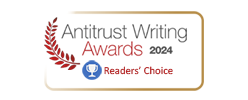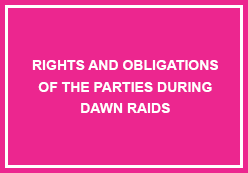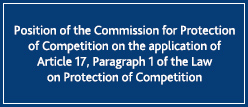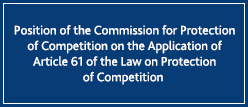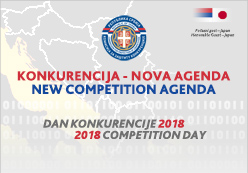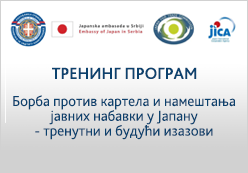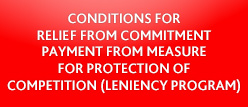 From March 15-17, the German competition authority Bundeskartellamt organized its 18th International Conference on Competition in Berlin, a traditional biennially held event that is one of the most renowned events on competition policy.
From March 15-17, the German competition authority Bundeskartellamt organized its 18th International Conference on Competition in Berlin, a traditional biennially held event that is one of the most renowned events on competition policy.
The topic of this year’s conference related to various aspects and challenges in competition policy implementation deriving from market digitalization and globalization. The keynote speakers opening the conference were Mr. Andreas Mundt (see the picture), President of Bundeskartellamt, Ms. Brigitte Zypries, Federal Minister for Economic Affairs and Energy, Ms. Margrethe Vestager, European Commissioner for Competition, and Dr Frank Appel, Chief Executive Officer of Deutsche Post JSC. The conference was attended by numerous international competition authorities’ senior representatives, EU courts judges, anti-trust jurists, professors, politicians, international companies’ representatives, etc. Ms. Gordana Lukić (see the picture), Special Advisor, represented the Serbian Commission on the occasion.
The conference also presented an opportunity to discuss on the possibilities and directions for further development of current successful cooperation between the Commission and Bundeskartellamt.
Several panels were held during the conference covering the topics: Size or competition – What drives innovation and investment?; Platforms, networks, big data – Do competition authorities get it right?; Economic theory – Ready for the digital world?, and Modern cartel enforcement – Yesterday’s success stories – tomorrow’s failures?. The Commission representative also participated in the workshop foremost dedicated to the young competition authorities, covering issues of the successful advocacy program strategies, as well as priorities, aims and procedures relating to market analysis and sector inquiries.
 Seminar on Market Definition, held in Budapest, Hungary, organized by the Regional Center for Competition (RCC), as a joint venture between the Organization for Economic Co-operation and Development (OECD) and Hungarian Competition Authority (Gazdasági Versenyhivatal, GVH), presented an additional opportunity for professional education of the Commission for Protection of Competition representatives.
Seminar on Market Definition, held in Budapest, Hungary, organized by the Regional Center for Competition (RCC), as a joint venture between the Organization for Economic Co-operation and Development (OECD) and Hungarian Competition Authority (Gazdasági Versenyhivatal, GVH), presented an additional opportunity for professional education of the Commission for Protection of Competition representatives.
The event was dedicated to defining the relevant market, considered as a mandatory phase in nearly all competition proceedings, particularly in concentration control related proceedings. Seminar participants were panelists of the Regional Center for Competition, European Commission, French Competition Administration (Autorité de la concurrence), American Federal Trade Commission and Hungarian Competition Authority, in addition to representatives of participating national competition authorities. Case studies of particular participating countries were presented during the seminar, as well as theoretical cases addressed by working in small groups.
The Commission for Protection of Competition was represented by Ivana Rakić, Department for Investigation of Concentration, and Aleksandra Ravić, Department for Economic Inquiries. Ms. Rakić represented the CPC case study in regards defining the relevant product market in outdoor advertising.
 Member of the Council of the Commission for Protection of Competition, Veljko Milutinović, PhD, participated at the 15th OECD annual conference – “Global Forum on Competition“.
Member of the Council of the Commission for Protection of Competition, Veljko Milutinović, PhD, participated at the 15th OECD annual conference – “Global Forum on Competition“.
Traditionally, the annual symposium took place at the headquarters of the Organization for Economic Cooperation and Development (OECD) in Paris.
The main topics of this year’s Forum were: “Promoting competition, protecting human rights”, “The role of market studies as a tool to promote competition”, “Independence of competition authorities – from design to practice”, and “Sanctions in antitrust cases”.
The Commission for Protection of Competition provided written features for the sessions “Sanctions in antitrust cases” and “Independence of competition authorities – from design to practice”.
During the sessions, particularly those related to the independence of competition authorities and sanctions in antitrust cases, dr Milutinović notified colleagues from other national competition authorities, international organizations and academic community representatives that took part in the symposium, of the operating manner of the Commission for Protection of Competition of the Republic of Serbia, and conveyed working experiences gained so far. During the conference, dr Milutinović also had a series of bilateral meetings with competition authorities representatives aimed at improving further cooperation, and also with renowned international experts from the competition field whose know-hows might additionally contribute to the opeartive quality of the Commission for Protection of Competition of the Republic of Serbia.
The conference was attended by more than 90 competition authorities delegations worldwide and other representatives of international organizations, academic community and business associations.
 Representatives of the Department for Economic Inquiries of the Commission for Protection of Competition, Siniša Milošević, PhD, Department Head, and Jelena Markopoulos, MA, Senior Advisor, attended the 14th annual conference of the Association of Competition Economics – ACE, held in Amsterdam.
Representatives of the Department for Economic Inquiries of the Commission for Protection of Competition, Siniša Milošević, PhD, Department Head, and Jelena Markopoulos, MA, Senior Advisor, attended the 14th annual conference of the Association of Competition Economics – ACE, held in Amsterdam.
The two-day conference is organized into three plenary sessions and multiple parallel sessions, during which the numerous current cases from the European competition authorities’ practice were discussed, from concentrations (Celesio/Sainsbury, Ahold/Delhaize, British Telecom/EE, etc.), abuse of a dominant position (Deutsche Post), and harmonized practice (Container Shipping), to the energy market inquiries conducted in Great Britain.
During the stay in the Netherlands, the Commission representatives also attended the conference organized by the Netherlands Authority for Consumers and Markets – ACM, honoring the tenth year operating anniversary of the Department for Economic Inquiries.
Numerous representatives of the European competition authorities, reputable consulting firms and academics attended the conference, exchanging their experiences regarding the review of competition and consumer protection authorities’ operating efficiency.
 Following the invitation of the Director General of the Austrian Federal Competition Authority, Theodor Tanner, PhD, the President of the Commission for Protection of Competition, Miloje Obradović, PhD, and the Commission’s Secretary General, Dragan Penezić, visited Vienna.
Following the invitation of the Director General of the Austrian Federal Competition Authority, Theodor Tanner, PhD, the President of the Commission for Protection of Competition, Miloje Obradović, PhD, and the Commission’s Secretary General, Dragan Penezić, visited Vienna.
During the bilateral meeting organized on the basis of previously signed Memorandum of Cooperation between the two authorities, plans for the continuation of cooperation between two institutions were discussed, in addition to regional initiatives concerning expansion of knowledge and harmonization of practices regarding competition law and policy in the European Union, as well as current issues in which Austrian and Serbian competition authorities are currently involved.
During the talks on the modalities of improvement of relations and manners of joint operations, it has been agreed that in the following period and before the end of 2016, the Serbian Commission’s team in charge of dawn raids is to hold a training and inspection simulation with Austrian colleagues which will enable acquiring new skills as to on using this very important tool for data and information collection, utilized by all developed competition protection authorities in the world.
The visit is used so that management and employees of the Austrian Federal Competition Authority can be familiarized with the Serbian authority’s activities and plans concerning the further advancement of the Commission for Protection of Competition of the Republic of Serbia.
 The 8th Sofia Competition Forum held beginning June in the Bulgarian capital city, traditionally gathered representatives of the national competition authorities from the Balkans.
The 8th Sofia Competition Forum held beginning June in the Bulgarian capital city, traditionally gathered representatives of the national competition authorities from the Balkans.
Forum participants coming from Albania, Bosnia and Herzegovina, Croatia, Montenegro and other regional countries, but also competition authorities’ representatives from Germany, Japan, France, Austria, Italy, Portugal, Slovenia, Russia, Turkey, alongside speakers from organizations such are the UNCTAD and OECD, European Union Court of Justice, European Commission, reputable international experts for competition policy, as well as legislators and representatives of the academic community, exchanged experiences related to the competition law and policy implementation. The Forum seeks to encourage cooperation and development of regional relations, thus ensuring uniform application of competition-related rules.
At the Forum, Serbian Commission for Protection of Competition was represented by the Head of the Restrictive Practices Division, Mr. Čedomir Radojčić, one of the most prominent forum panelists. Attached is the representative’s presentation from the Sofia Competition Forum.
 Representatives of the Commission for Protection of Competition of the Republic of Serbia, following an invitation of the Romanian Competition Council, visited Turnu Severin from June 8-10, 2016. The bilateral meeting, based on previously signed Memorandum of Cooperation between the two authorities, has been organized in the form of a roundtable for discussing numerous topics that have been jointly delegated.
Representatives of the Commission for Protection of Competition of the Republic of Serbia, following an invitation of the Romanian Competition Council, visited Turnu Severin from June 8-10, 2016. The bilateral meeting, based on previously signed Memorandum of Cooperation between the two authorities, has been organized in the form of a roundtable for discussing numerous topics that have been jointly delegated.
The meeting was also utilized so than Romanian competition authority’s representatives could present a platform they have established, related to the treatment of initiative applicants and “whistleblowers”, bid rigging cases, cartels in the oil and oil derivatives sector, and sectoral analysis. During the meeting, the concrete forms of cooperation between the two institutions in reference to the mentioned fields are also taken into consideration.
Serbian and Romanian delegations were led by the Commission’s President, Miloje Obradović, PhD, and the Council’s President, Bogdan Marius Chiritoiu, respectively, in addition to Council’s members, secretaries and professional administrative service representatives.
 Representatives of the Commission for Protection of Competition of the Republic of Serbia visited Rome during the three-day study visit to the Italian competition authority (Autorità Garante della Concorrenza e del Mercato). The study visit was organized as a part of a program support provided by „TAIEX“ – Technical assistance and information exchange instrument of the Directorate-General for EU enlargement.
Representatives of the Commission for Protection of Competition of the Republic of Serbia visited Rome during the three-day study visit to the Italian competition authority (Autorità Garante della Concorrenza e del Mercato). The study visit was organized as a part of a program support provided by „TAIEX“ – Technical assistance and information exchange instrument of the Directorate-General for EU enlargement.
During the study visit, a regulatory framework of the Republic of Italy competition law was presented, with particular emphasis on: determining infringement of competition in public procurement procedures; implementation of advocacy institute; implementation of leniency program and penalties for undertakings; practice in cases of conditional approval of concentration; implementation of economic analysis on competition regulation in specific sectors (free-lance professions, sport, burial services, banks, insurance).
The goal of this study visit was to improve knowledge and skills from the most important areas of competition law (restrictive agreements, abuse of a dominant position, economic analysis, control of concentrations), by informing from the examples of best practices and case studies of the Italian competition authority.
 The second day of the international conference “Institution Building of the National Competition Authorities in South-East Europe”, organized by the Commission for Protection of Competition of the Republic of Serbia in cooperation with the European Bank for Reconstruction and Development and with the technical support of the Center for Liberal-Democratic Studies (CLDS), was dedicated to the role of economics in the implementation of competition policy. An important role in this, as well as many other matters related to the implementation of competition policy, is played by a high quality economic analysis.
The second day of the international conference “Institution Building of the National Competition Authorities in South-East Europe”, organized by the Commission for Protection of Competition of the Republic of Serbia in cooperation with the European Bank for Reconstruction and Development and with the technical support of the Center for Liberal-Democratic Studies (CLDS), was dedicated to the role of economics in the implementation of competition policy. An important role in this, as well as many other matters related to the implementation of competition policy, is played by a high quality economic analysis.
During the conference, four panels were held which presented the experiences and economic tools in the process of market analysis, the determination of competition infringements and control of concentrations.
Notable presentations were given by Russell Pittman from the US Department of Justice, who presented the three most widely used economic instruments in the analysis of competition infringements, and Gregor Langus from the European Commission, who spoke about why economic analyses are the main tool in the effective policy of competition protection. Jelena Grahovac from the Economic Analyses Division of the Commission for Protection of Competition of the Republic of Serbia presented the experience of the Commission employees following the first economic and econometric trainings. The head of the Economic Analyses Division, Siniša Milošević, PhD, gave a speech on the “Analysis of price movement as a tool in defining the relevant market”, while Dajana Muženič-Abramovich from the Slovenian Competition Protection Agency spoke about the quantitative economic tests for defining the relevant market. Radu Paun from the Competition Council of Romania acquainted the participants of the conference with the economic instruments applied by this body in the context of measuring competitive pressure in the selected sectors of the economy. Gazmir Mani from the Albanian authority presented a case of abuse of dominant position in the mobile telephony market. Kim O’Sullivan from the EBRD provided a view of the role of economics in law and policy of competition protection as a way to improve the investment climate in the region.
 In addition to the aforemntioned economic tools, competition authorities often use instruments for monitoring the market (such as sectoral analysis, studies, reports, research, etc.) with the aim of identifying possible weaknesses in the market and/ or the existence of conditions of competition infringements.
In addition to the aforemntioned economic tools, competition authorities often use instruments for monitoring the market (such as sectoral analysis, studies, reports, research, etc.) with the aim of identifying possible weaknesses in the market and/ or the existence of conditions of competition infringements.
 The Commission for Protection of Competition of the Republic of Serbia has, in cooperation with the European Bank for Reconstruction and Development and with the technical assitance of the Centre for liberal-democratic studies (CLDS), organized an international Conference on Institution Building of the National Competition Authorities in South- East Europe.
The Commission for Protection of Competition of the Republic of Serbia has, in cooperation with the European Bank for Reconstruction and Development and with the technical assitance of the Centre for liberal-democratic studies (CLDS), organized an international Conference on Institution Building of the National Competition Authorities in South- East Europe.
The Conference was opened by the President of the Commission for Protection of Competition, Miloje Obradović, PhD, the director of the EBRD for Serbia, Daniel Berg and the head of the Negotiating team for the Accession of the Republic of Serbia to the EU, Tanja Miščević.
The President of the Commission for Protection of Competition, Miloje Obradović, PhD, has emphasised that, after years of recession, the national competition authorities do not have the right to a mistake, that they must secure free application of the competition rules and intervene only to the extent and manner necessary to ensure consumer welfare.
”I believe that the only solution may be obtained through the build-up of institutional capacities of the bodies for protection of competition so that they would be enabled to, based on economic parametres, act as objectively as possible. What we need are new tools and instruments for assessing the market and behaviour of its participants. Also, what is important is the performance of relevant sector inquiries, the topic which we will, to my pleasure, discuss tomorrow.”
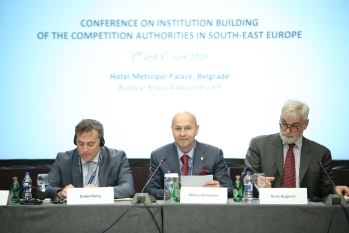 President Obradović has further stated that he believes there is significant room for improvement of the institutional capacities of the national competition authorities in the region.
President Obradović has further stated that he believes there is significant room for improvement of the institutional capacities of the national competition authorities in the region.
”The exchange of experiences which contribute to the alignment of practice, as a necessity in the times of interconnected markets and globalization, as well as the presentation of new tools, procedures and legal solutions shall, without doubt, be the required step further in the fight against the increasingly subtle attempts at competition infringements, which we get to witness every day.”
The director of the EBRD for Serbia, Daniel Berg, has expressed his support for engagement and role of the national competition authorities and emphasised the importance of the fact that Serbia has a Commission which is capable of facing the challenges in creating equal conditions for all the market participants. These kinds of gatherings are, according to Berg, of crucial significance since they provide for an exchange of experiences which will improve the functioning of the all competition authorities in the South-East region of Europe.
”If the market is regulated, the conditions for economic growth and society welfare are in place. If the grey market has a larger share, the probability of criminality rise is higher”, it was concluded by Berg, who also added that the EBRD and other international institutions are making a strong contribution and efforts to enhance the regulatory framework in order to improve the investment climate in those countries.
In that sense, Serbia is extremely successful, in the opinion of Berg, since it has a set of economic laws in place which improve the conditions for its competitiveness.
The head of the Negotiating team for the Accession of the Republic of Serbia to the EU, Tanja Miščević has stated that Serbia will not face larger problems in negotiating Chapter 8 with regard to competition issues.
”When it comes to protection of competition, the position of Serbia shall, thanks to the quality of the work performed by the Commission for Protection of Competition, not be problematic. Nevertheless, state aid is also a part of this negotiating chapter and this is where matters will be a lot more complex.”
She made a remark that the Commission for Protection of Competition is a good example of the functioning of an independent body, even though such bodies were mainly unknown in the countries with transition economies.
The Conference was also attended by renowned panelists such as Russell Pittman, PhD, of the US Department of Justice, Lorenzo Ciari of the EBRD, Gregor Langus of the European Commission and many other international and local experts in this field, representatives of the legal profession, as well as the business and academic community in Serbia.
Media support of the Conference was provided by the N1 television, Fonet agency, as well as the Nedeljnik and Nova Ekonomija magazines.
